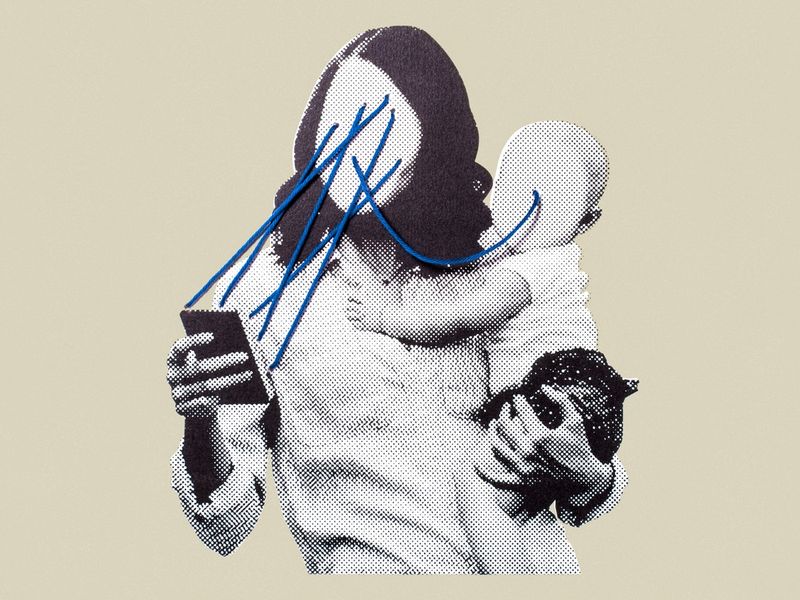19 Signs You Were Raised By A Mom Who Secretly Didn’t Like Being A Mom
Being raised by a mom who secretly didn’t enjoy motherhood can leave lasting emotional imprints. This blog post explores 19 subtle signs that may indicate such an experience, offering a nuanced understanding of complex mother-child dynamics.
1. Affection Always Felt Forced or Transactional

Affection can be a comforting expression of love, yet for some, it feels unnatural. Did your mom’s hugs feel like obligations rather than heartfelt embraces? Maybe she hugged you at expected times but rarely out of spontaneous joy.
Transactional affection often includes physical gestures given as rewards for good behavior. Did praise accompany a hug, transforming it into an exchange rather than genuine warmth? These experiences can affect how you perceive love and kindness in relationships.
Reflecting on these moments, you might recognize that the affection was often inconsistent and somewhat mechanical. It might have seemed like a chore rather than a desired connection, leaving you yearning for something more sincere.
2. You Were Often Treated Like a Burden

Did you often feel like an inconvenience, as if your presence demanded too much from your mom? Perceiving yourself as a burden can stem from subtle cues: sighs, eye rolls, or dismissive remarks.
These are not just small gestures; they accumulate into a narrative of unworthiness. When everyday requests are met with visible irritation, it can deeply impact your self-esteem.
Reflecting on such interactions, you might see a pattern of being treated like an obligation rather than a joy. This perception can influence your relationships, leading you to be overly self-reliant or hesitant to ask for help.
3. Praise Was Rare—and Uncomfortable When It Came

Praise, when given sparingly, may feel awkward and insincere. Did compliments seem begrudging, as if extracting kindness was a chore? Perhaps your achievements were acknowledged with minimal enthusiasm.
When praise feels rare, it can create self-doubt. The hesitation in your mom’s voice or her quick change of subject often speaks volumes.
You may have craved approval, yet when it arrived, it felt out of place, as if you hadn’t truly earned it. This emotional tension can linger, affecting how you respond to success and recognition today.
4. She Often Compared You to Others

Comparison, often disguised as motivation, can sting. Did your mom frequently point out how others outshined you? Such remarks can foster feelings of inadequacy and fuel sibling rivalries.
This behavior might have been her way of pushing you to excel, but it often backfires. Instead of inspiring growth, it breeds resentment and self-doubt.
Over time, these comparisons can overshadow your unique qualities, making you question your worth. Reflecting on this, you may recognize a lingering quest for validation in your adult life.
5. Her Patience Had a Short Fuse

Short-temperedness can be confusing for a child. Was your mom’s patience as fragile as a thin glass? A single misstep, and it shattered into frustration or anger.
This lack of patience often results in hurried conversations and abrupt endings to activities, leaving you feeling rushed and unimportant.
Such experiences can contribute to anxiety and a fear of making mistakes, as you constantly walked on eggshells to avoid triggering her temper.
6. Your Wins Never Seemed Good Enough

Imagine the joy of winning something, only to have it met with a lackluster response. Did your achievements feel small in your mom’s eyes, as if they weren’t worth celebrating?
This dismissive attitude can diminish your sense of accomplishment, leading you to question your abilities.
Reflecting on these moments, you might realize they pushed you to seek validation elsewhere, or to overcompensate by striving for perfection.
7. She Needed You to Grow Up Fast

Were you thrust into roles beyond your years, handling responsibilities that seemed too big for your small shoulders? This premature maturity can be a sign of parental discontent.
As you took on tasks typically reserved for adults, you may have missed out on aspects of a carefree childhood.
The pressure to act older can affect your personal development, leaving you feeling burnt out or unable to relate to peers who enjoyed more traditional childhoods.
8. You Felt Like Her Emotional Caretaker

Did you find yourself playing the role of the emotional support, soothing your mom when she was distressed? This reversal of roles can place an undue burden on a child.
Such dynamics often blur the lines between parent and child, leading to confusion about boundaries and roles.
If you were more accustomed to listening to her worries than sharing your own, it could have shaped your emotional intelligence, making you hyper-aware of others’ needs at the expense of your own.
9. She Rarely Engaged in Your World

Was your world a mystery to her, filled with interests and activities she never took an interest in? This disengagement can lead to a feeling of invisibility.
When your mom rarely participated in your hobbies or queries, it might have felt as if she was always on the periphery of your life.
This lack of engagement could make you feel as though your passions were unimportant, influencing how you engage with others today.
10. Motherhood Seemed Like an Obligation, Not a Joy

Did raising you seem more like a checklist task than a joyous journey? When motherhood appears as a duty rather than a delight, it can affect the emotional climate at home.
This attitude can manifest in structured routines devoid of spontaneity, leaving little room for joyful interactions.
Reflecting on these memories, you might notice a pattern of interactions that were more about fulfilling obligations than sharing genuine moments of connection.
11. You Were More of a “Project” Than a Person

Were you more of a project, an opportunity to mold and perfect, rather than a person to be cherished? This perspective can feel dehumanizing, as if your value lies solely in achievements.
The constant drive to improve can overshadow your individual needs and desires, making you feel like an extension of her ambitions.
Such experiences might have left you striving for perfection, masking the true self beneath layers of imposed expectations.
12. Her Presence Felt Emotionally Distant

Physical presence doesn’t always equate to emotional connection. Did your mom seem there but not really there? This emotional distance can create a void that feels hard to bridge.
Conversations might have felt superficial, lacking depth or empathy. Her mind seemed elsewhere, leaving you yearning for a connection that never fully materialized.
This lack of emotional availability can influence how you perceive relationships, leading you to guard your own emotions closely.
13. You Feared Asking for Help

Did asking for help feel daunting, as if it might provoke frustration or disappointment? This fear can hinder your willingness to seek support when needed.
If requests were often met with exasperation or dismissal, it might have seemed safer to handle problems on your own.
Over time, this conditioning can foster a sense of independence tinged with anxiety, affecting how you approach challenges today.
14. She Parented with Resentment in Her Tone

Did your mom’s words often carry an edge of resentment, even in mundane conversations? This tone can communicate more than the words themselves, embedding feelings of guilt or inadequacy.
Whether it was correcting mistakes or addressing daily tasks, a resentful tone can leave you questioning your worth.
Reflecting on these exchanges, you might see a pattern where her voice, rather than her actions, shaped much of your emotional landscape.
15. You Sensed She Longed for a Different Life

Did you catch glimpses of longing in her eyes, as if she yearned for a different path? This unspoken desire can permeate the atmosphere, leaving you feeling like an unintended detour.
Her dreams might have seemed bigger than the life she lived, casting a shadow of what could have been.
These silent yearnings can create an undercurrent of dissatisfaction, impacting how you view your own choices and aspirations.
16. She Often Undermined Your Confidence

Confidence can be fragile, especially when the foundation is frequently shaken. Did your mom’s remarks often undercut your self-belief? Even subtle jabs can have lasting impact.
Instead of encouragement, you might have encountered skepticism, leaving you second-guessing your abilities.
Such undermining can create a cycle of self-doubt, influencing how you perceive challenges and opportunities.
17. Love Was Conditional and Hard to Earn

Did love feel like something you had to earn, rather than a given? Conditional love can leave you in a constant state of striving, as if approval was perpetually out of reach.
This dynamic might have led you to equate love with achievements or obedience, rather than genuine connection.
Over time, it can impact your self-worth, as you seek validation through accomplishments rather than inner acceptance.
18. You’ve Struggled to Define Healthy Parenting

Did defining what it means to be a good parent become a complex puzzle? Reflecting on your upbringing, you might find contrasting images of what parenting should be.
Your experiences could have left you uncertain about boundaries, communication, and nurturing.
This struggle can lead to a quest for knowledge, as you seek to understand and redefine parenting in a way that feels authentic and healthy.
19. You Now Parent Very Differently—and It Brings Peace

Have you chosen a different path in parenting, one that embraces kindness and understanding? Your childhood might have served as a blueprint of what not to do.
Embracing a nurturing approach can bring peace, as you break free from past cycles and cultivate an environment of unconditional love.
This journey of change can be empowering, offering a sense of healing and fulfillment as you create a healthier legacy for the next generation.







